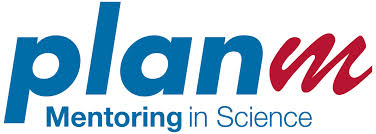- Startseite
- Ausbildung / Karriere
- Postdocs
- Mentoring and Coaching
Mentoring and Coaching for Postdocs
Postdocs usually find impulses for qualification and career development opportunities from colleagues and supervisors in their working group or within their overall professional network.
In addition it can be helpful to get guidance from a mentor or coach, depending on the questions you have or the goals you want to achieve. Such an exchange or counselling process is a rewarding way of self-development since you will receive honest feedback and benefit from the other person's experience.

Mentoring - Learning from the experience of others
A mentor is usually a scientist who already has a head start in professional experience, and who will support you in various roles (e.g. role model, advisor, critic, promoter) on your further career path and who can offer another (possibly external) view of your current professional situation.
A mentoring relationship will be especially helpful when you have some specific questions in mind (typically regarding your career) that you want to solve for yourself, for example
- As a new postdoc on my first project, how do I organise myself arround finishing my doctoral project, working on my new postdoc project and already planning the second postdoc project?
- I would like to have my own research group eventually. What do I need to do? Which skills do I need, which contacts may help? How many first-authored publications will I need?
- Being an advisor to Master/doctoral researchers myself, how can I learn to be a good mentor for them? Who could serve as a role model for me?
- I would like to become a professor and have children at the same time. Is this even possible?
Of course there are many different questions you might have.

Every postdoc at MARUM can have a mentor. This can be anyone at MARUM or an external scientist or other professional.
If you need support in finding a mentor, we will be happy to assist you. We may also provide an official letter of invitation and funding support for travel if you want to go and visit an external mentor in person. Please note that the budget is limited and thus decided upon on an individual basis.
Just contact the ECR support.
Peer-group supervision - leaderless counselling
Peer group supervision is a form of leaderless counselling amongst colleagues by following a given procedure. Participants address key topics of their professional lives in order to develop solutions for challenges and problems they face at work. The strength of this format is the (self-) empowerment of the group members and the improvement of their relationships. The fixed structure of the meetings, which are held in regular intervals, ensures a clear focus on a topic and on the person who asked to address it within the group.
See Peer Group Supervision for Postdocs for more information.
Coaching - Gaining clarity, developing an attitude
A (professional) coach is someone who has been trained to support people in discovering their own potential and in developing strategies to achieve their goals. A coach always stays in the position of non-judgement. They will help you to identify potential problems and find solutions with respect to your personality.
Coaching is a usually a process with a limited time-frame which you will discuss with the coach. A typical set-up is 5 sessions, with 90 minutes each. Sometimes one session can be sufficient, especially when you need some SOS help. This all depends on your needs.
Meeting with a coach can be helpful when you are in a situation (or are facing one) that you feel uncertain or insecure about, for example
- You would really like to continue working in science but so many obstacles seem to be between you and an academic career. You are just not sure what you really want anymore. The aim of a coaching could be to gain clarity about career and life goals.
- You are co-supervising a PhD student who has a different working morale than you. You have no clue how to motivate the student to become more engaged. The aim of a coaching could be to develop a strategy and an attitude for your own mentoring style.
- You feel you have problems communicating with your supervisor. She/he constantly seems to have different expectations than you. You asked them for a meeting and now you are afraid of this meeting. The aim of a coaching could be to find out what you expect from your supervisor and what you want for yourself and to develop a strategy to communicate this to them.
- You have been successful with a funding proposal and are invited for an interview. You want to make a very confident impression on your potential new employer. The aim of a coaching could be to develop an atttitude that makes you feel confident and to practice the interview in a role game.
Of course these are just examples. There are many other situations where a coach may be helpful.
How to find a coach
| Individual coaching for PhD students and postdocs offered by the personnell development of the University of Bremen |
| Individual coaching for postdocs offered through BYRD |

If you are looking for a different type of coaching, you are welcome to contact the ECR support. We will be happy to find an individual solution for you.
Group programmes for female postdocs
| navigare - Career Coaching for Women in Science 1-year programme for female PhD students and postdocs at the University of Bremen* |
| plan m - Mentoring for Women in Science 1.5-year programme for female PhD students and postdocs at the University of Bremen* |
* all members of MARUM are also members of the University of Bremen




